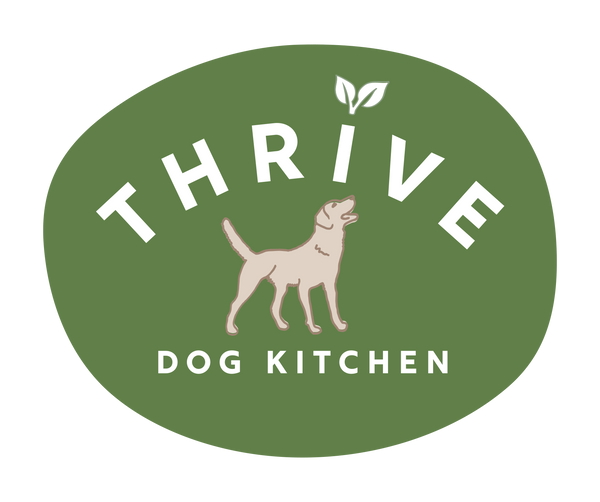Whether you are a first time dog parent or a dog parent of many years, one of the most important decisions you will make is choosing a veterinarian for your dog and you. As you will have a relationship with this person for upwards of 10+ years with at least annual check-ups you want to be sure that the veterinarian and the clinic you choose is right for you.
Just like there are different types of GP for yourself and your family there are different types of veterinarians. As a pet parent it is important to understand the differences between the types of veterinarians to help you make a well-informed decision about the best veterinarian for you and your dog.
A spectrum of care
Today’s veterinarians receive training to treat a variety of species primarily through conventional methodologies. However, some veterinarians choose to expand their learning to treat animals through different approaches.
Veterinarian medicine is a spectrum. On one end is the conventional practice, with the holisitic practice on the other and the integrative practice sitting in the middle.
While conventional practices are more mainstream and easier to find, holistic and integrative practices are slowly growing in numbers.
Types of Veterinarians
Conventional |
Holistic |
Integrative |
| Looks at the current problem | Whole body approach | Balanced approach |
| Treats symptoms, rather than the root cause | Looks at the overall health and well being of the dog | Combination of conventional care with alternative therapies |
| Focus on regular vaccinations | Supports titer testing for vaccinations | Evidenced based approach |
| Mainstream medicine involving medication and surgery | A more natural approach with non-traditional treatments before recommending medicine | Trained in multiple methodologies |
| Will recommend regular flea, worm and tick medication | Works to treat the cause, rather than the symptoms |
The focus of conventional medicine is disease oriented: diagnose disease and drug it with powerful chemical agents that may actually cause the disease...What I learned to do was to assign a purpose and reason to disease and to figure out why nature created.
Choosing a veterinarian
Recently, many conventional veterinarians have started to incorporate holisitic methodologies into their practice. Here in New Zealand finding an integrative or holistic clinic is limited to only a handful.
If an integrative or holistic clinic is not an option, then build your own team of veterinarians and practitioners within New Zealand and further afield.
If a conventional veterinarian is your primary vet, and you would like to collaborate with other veterinarians and practitioners, start a dialogue with them about bringing in others to develop a multi-modal treatment plan. It's like building a super vet for your dog.
When working with other practitioners, keep your primary veterinarian notified of alternative treatments, medications and/or supplements prescribed outside their clinic.
It is important to remember that one type of veterinarian is not better than the other. They have your dog’s best interests at heart.
How do I find a veterinarian?
When choosing your veterinarian ask for recommendations from friends and families that have pets and more importantly share similar beliefs to yours. They will be a wealth of knowledge of the local clinics and veterinarians from a client perspective.
Alternatively, check out the New Zealand Veterinary Association directory, which lists all the practices in New Zealand.
Lastly, the College of Integrative Veterinary Therapies lists the handful of integrative veterinary practices in New Zealand. There are many veterinarians overseas that are open to online consults.
Questions to ask when searching for a vet
Thorough reasearch is important when selecting your vet. If possible, meet with a few veterinarians and interview them to see which one is the best for you and your family member. Here are few questions we recommend asking.
What is your vaccination protocol?
There are standard vaccinations that puppy requires. Most conventional practices require annual boosters. However, as the puppy grows up an alternative to annual vaccinations is titer testing, which looks to see if the vaccine is still prevelant in the dog's system. This is a much safer and cost effective method to manage vaccinations.
What is your worm, flea and tick protocol?
Ideally the veterinarin will not recommend automatic deworming or treatment for fleas and ticks. Rather, they will screen for parasites. In the case of worms that involves a fecal examnation. For fleas and ticks it simply finding evidence of the parasite on your dog.
What is your opinion on a fresh food diet?
Whether you feed your dog a fresh food diet or not, choosing a vet that is open, or even better, supports and recommends adding fresh foods into your dog's diet is critical. If the veterinarian is reluctant, working with a canine nutritionist to share your knowledge with your vet is very helpful.
How do manage fearful, anxious, stressed animals?
Going to the vet can be a stressful and fearful time for your dog. They get poked and prodded and are surrounded by lots of different smells and other animals. It's often not a very fun experience. Knowing how the vet and other staff will help you and your dog have a relaxed experience is important.
How do you interact with animals?
This might be the most important question to ask. Better yet, see it in action. A vet that interacts with your dog, gets down to its level before performing an examine indicates their knowledge of dog behaviour and compassion for dogs.
What is your opinion on alternative treatments?
If the veterinarian follows conventional practices ask them if they are open to other methodologies to managing care for your dog, i.e. acupuncture, physiotherapy, homeopathy, water therapy, etc.
You know your dog better than anyone, making you their advocate in every part of their life. Partnering with a veterinarian that aligns with your beliefs is important. They will help support you in making decisions for your dog for the benefit of their health and well being.

